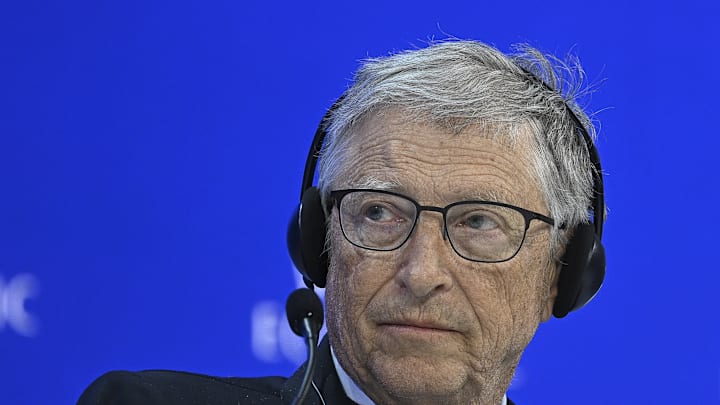Microsoft's recent decision to cut nearly 2,000 jobs within the gaming workforce is sending shockwaves through the games industry. The layoffs, affecting approximately 8.6% of the 22,000-person team, were communicated by Xbox boss Phil Spencer in a memo obtained by IGN. Spencer emphasized the company's commitment to aligning with a sustainable cost structure, stating that the move is a "painful decision" but necessary for the overall strategy and execution plan.
The impacted studios include industry giants Activision Blizzard, ZeniMax, and Xbox, with Spencer expressing gratitude for the creativity and dedication brought by the affected individuals to games, players, and colleagues. Microsoft plans to provide full support during the transition, offering severance benefits in accordance with local employment laws.
This development follows Microsoft's $69 billion acquisition of Activision Blizzard three months ago, where control over franchises like Call of Duty was transferred to the tech giant. However, the layoffs indicate that the integration process might be leading to restructuring and streamlining efforts.
The timing of these job cuts adds to the challenging landscape for game workers in 2024, which has already witnessed over 4,000 job losses within the first month. The games industry, despite the anticipation of numerous releases, is grappling with instability, exemplified by the unexpected staff reduction at Microsoft. This event raises concerns about the sustainability of game development and the impact of large-scale corporate decisions on the workforce.
As the industry navigates through these challenges, the layoffs at Microsoft serve as a stark reminder of the uncertainties faced by game workers. The repercussions of such strategic moves extend beyond the affected individuals, affecting the broader ecosystem of game development. Microsoft's commitment to growing the business and bringing more games to a wider audience will undoubtedly be closely observed in the aftermath of this significant workforce reduction.
The layoffs at Microsoft come at a time when the games industry is already grappling with a wave of job losses, marking a turbulent start to the year for game workers. Microsoft's commitment to supporting those impacted during the transition, along with severance benefits, reflects an acknowledgment of the human element in these corporate decisions.
The departure of Blizzard’s president Mike Ybarra and chief design officer Allen Adham, reported by The Verge, adds another layer of complexity to the situation. Blizzard, a subsidiary of Activision Blizzard, is set to announce a new president soon. Additionally, the cancellation of a survival game currently in development further underscores the significant changes within the studio.
This move follows a broader trend in the industry, as companies like Unity also recently announced significant layoffs, further contributing to the challenges faced by game developers. The consolidation and restructuring within major gaming corporations, while strategic from a business perspective, raise questions about the long-term impact on the creative and innovative aspects of game development.
The games industry, often characterized by its dynamic nature, now faces a period of introspection as it navigates the delicate balance between corporate strategy, business sustainability, and the well-being of its workforce. The resilience and adaptability of the industry will be put to the test as it strives to address these challenges and provide a stable and supportive environment for game workers in the coming months.
As the dust settles on Microsoft's workforce reduction, the broader implications for the gaming landscape will become clearer. The industry's stakeholders, from developers to players, will closely monitor how major corporations respond to these challenges and shape the future of game development. The evolving narrative of 2024 serves as a reminder that, beyond the excitement of game releases, the industry must address structural issues to ensure a sustainable and thriving ecosystem for everyone involved.
The events at Microsoft and other recent layoffs in the games industry underscore the need for a more sustainable and supportive environment for game workers. The rapid pace of changes, acquisitions, and restructuring within major gaming corporations necessitates a closer examination of the industry's practices and the impact on its human capital.
While corporate decisions are often driven by strategic considerations and business goals, the well-being of the talented individuals who contribute to the creation of games should remain a central focus. The ongoing dialogue about workers' rights, fair labor practices, and industry standards gains even more significance in the face of these developments.
The collaborative efforts of industry leaders, workers' advocates, and gaming communities are crucial in shaping a future where creativity and innovation thrive alongside business success. This involves creating spaces for open communication, transparency, and fair treatment of employees. It also calls for proactive measures to address the challenges that arise during periods of transition and consolidation.
As Microsoft navigates through the aftermath of the workforce reduction, industry observers will be keenly watching how the company adapts its strategy to balance growth with the well-being of its workforce. The lessons learned from these experiences should serve as a catalyst for positive change within the broader games industry.
Ultimately, the success and longevity of the games industry depend not only on the creation of compelling and innovative experiences but also on the cultivation of a supportive and sustainable ecosystem. Game workers, as the driving force behind the industry's success, deserve an environment that values their contributions and safeguards their professional welfare.
In the face of challenges, the resilience and determination of the gaming community to create positive change will be a driving force in shaping the future of the industry. As the industry evolves, it is essential to prioritize the human aspect, ensuring that the games we love are created within an environment that fosters creativity, inclusivity, and fair labor practices.
